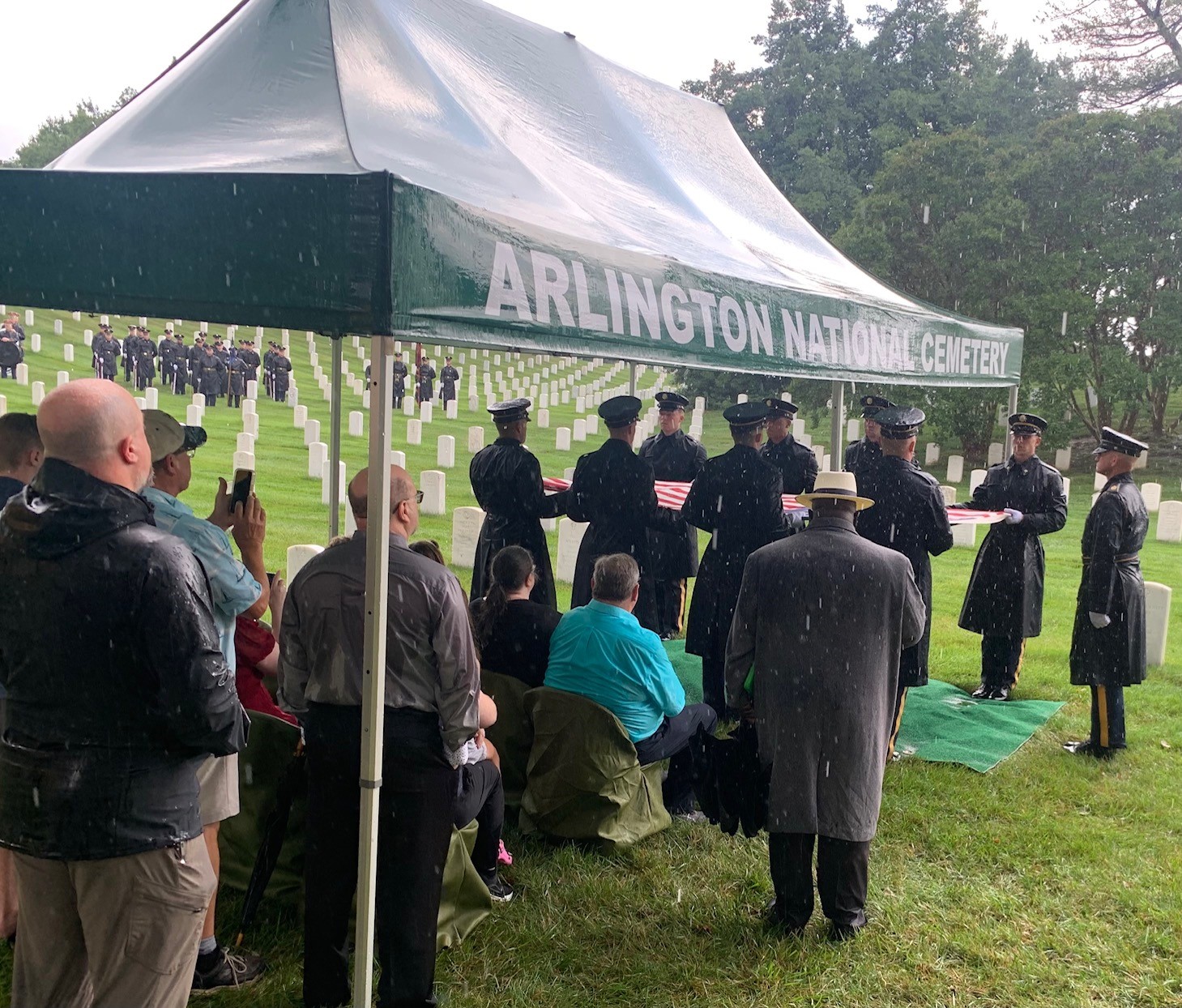
Pvt. First Class Alfred C. Bordeau joined the U.S. Army at age 17, spent his 18th birthday in a North Korean prisoner of war camp, and died before he turned 19. He left behind no wife or children, and his body was never returned to the United States. Yet his extended family made sure he would be remembered in a memorial service at Arlington National Cemetery (ANC) on July 7, 2023.
When the Korean War broke out on June 25, 1950, Bordeau, as a member of Task Force Smith, a force of about 400 soldiers from the 2nd Infantry Division, rushed from Japan to South Korea to stop the attacking North Korean Army. Bordeau was captured on his first day in combat and forced to march north on what became known as the tortuous Tiger Death March. He later died in a North Korean POW camp due to malnutrition and beatings from the guards.
Bordeau’s nephew, Duff Zube, learned about his uncle’s service from his grandparents and mother. He later accessed information from the Defense POW/MIA Accounting Agency and interviewed a veteran who knew his uncle from the POW camp. “He was wounded but helped another GI on that march,” said Zube, explaining that prisoners who fell out were shot. Zube also said that military prisoners in the POW camp were forbidden from talking to civilian prisoners, but his uncle spoke in French to several imprisoned nuns. According to Zube, "he got beaten with a rifle butt for that and died between the beating and the malnutrition.”
On July 7, Bordeau’s family—mostly nieces, nephews and their children—gathered at ANC’s Section 21 for a memorial service honoring their uncle’s sacrifice. “Let it be known that Pvt. First Class Alfred Charles Bordeau has given of his blood in defense of his homeland and shall forever be revered by his fellow countrymen,” said Army Chaplain (Cpt.) Philip Agber to the family.
After an Army firing party fired three volleys, a bugler sounded Taps and an Army band played the National Anthem, a soldier presented Zube with a tightly folded American flag, thanking him for his uncle’s service. A cenotaph for Bordeau will later be placed in Memorial Section L.
While Zube held his uncle’s flag, Chaplain Agber asked the family to pause and think about Bordeau. “While it is true that most of us here did not know Alfred,” explained Agber, “what we’re doing here is a celebration of life, of the person from memory.” Agbar listed Bordeau’s accomplishments as rain patted on the tent above him, adding, “We drench ourselves in rain in order to remember what he did; I think you can agree with me that it is worth it.” He concluded by telling the family, “We will honor him in our lives as this nation has tried to honor him today.”
After the ceremony, Zube explained that he had chosen Arlington National Cemetery to fulfill his mother’s wish. “This was more about my mom and grandparents,” said Zube. “If they were alive, they’d be proud and really happy with what the Army did today for us.”